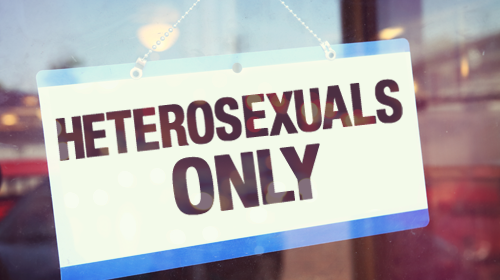
The Associated Press published a yesterday that reported many Americans say it's okay for wedding-related businesses to refuse to provide service to same-sex couples based on religious views.
Ouch. That amounts, in essence, to blessing the notion that businesses that open their doors to the public – be it bakeries or inns or florists or reception halls – can post big signs that say, "We don't serve gay couples here."
I understand why at first blush people may think this is okay, particularly if the couple can get a reception hall or flowers or a license from another business or registrar. But I believe that many of those surveyed would have another answer if we asked the question a different way: "Do you think it's okay to hurt someone simply because of who they are? As a country, do we want to condone discrimination?"
When we look at polls like this one, it's important to remember that they don't ask about the harm of being turned away, even though that harm is real and that harm is significant. When we've put that harm of discrimination front and center, our country has had something different to say.
In the content of considering the Civil Right Act of 1964, the Senate Commerce Committee talked about discrimination in a way that has meaning here:
Discrimination is not simply dollars and cents, hamburgers and movies; it is the humiliation, frustration, and embarrassment that a person must surely feel when he is told he is unacceptable as a member of the public.
Our civil rights laws don't allow people to discriminate based on race, sex, national origin, age, or disability based on an individual's religious beliefs. There's no reason that the rule should be any different for laws banning discrimination based on sexual orientation or gender identity. Here too, it's not simply flowers and inns; it's dignity and fairness.
The promise of inclusion that comes with measures to end discrimination is undercut if we say at the same time it's still okay to turn same-sex couples. It doesn't feel like society is really working to end discrimination if I can be turned away from a business because of who I am. And that's not possible if every time I go into a business, I wonder if I will be turned away.
Freedom of religion is one of our most fundamental rights. But that freedom does not give any of us the right to harm others.
That's not what fairness looks like. That's not what ending discrimination looks like. And it's not what most Americans want our country to look like.
An expanded version of these arguments can be found in , 38 Harv. J. L. &Gender 177 (2014).
Learn more about LGBT discrimination and other civil liberty issues: Sign up for breaking news alerts, , and .

